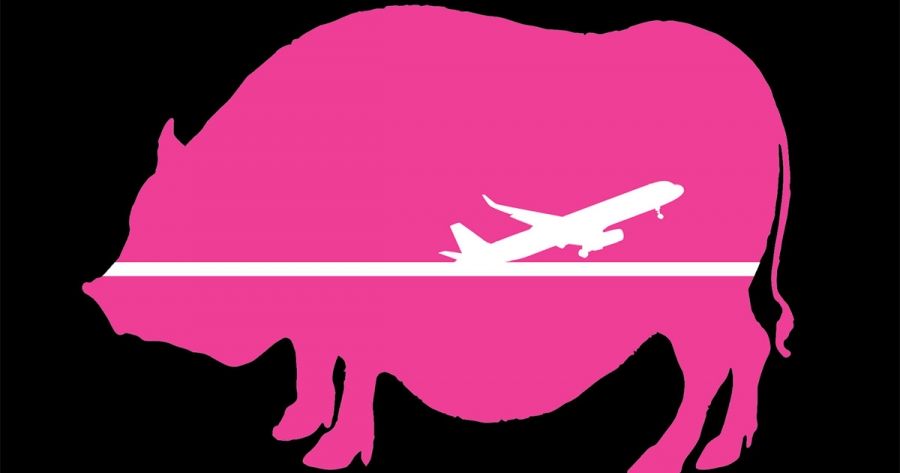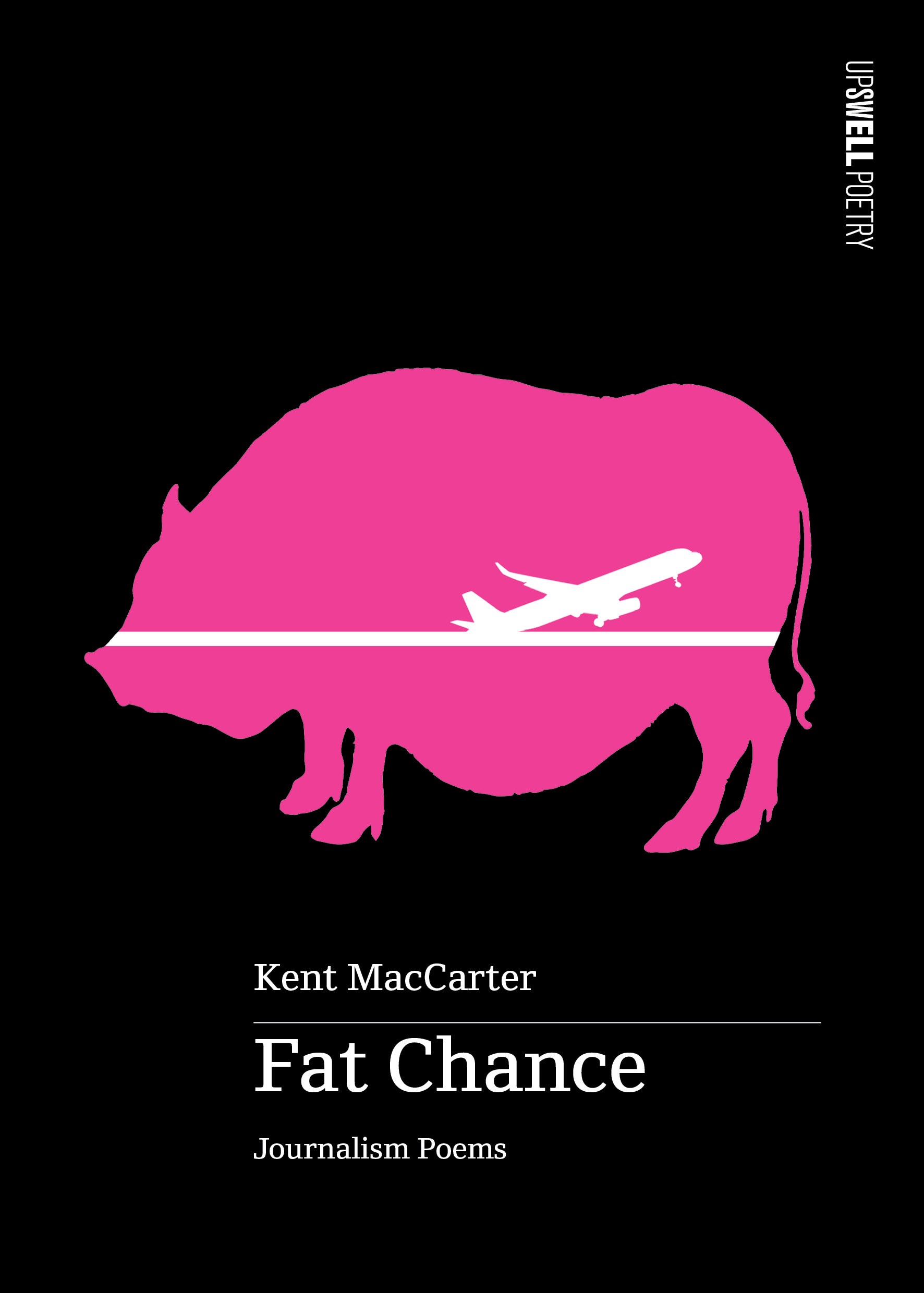
- Free Article: No
- Contents Category: Poetry
- Review Article: Yes
- Article Title: Survivals and endings
- Article Subtitle: A hotchpotch of personal and global menace
- Online Only: No
- Custom Highlight Text:
Fat chance. A million to one. Buckley’s. We’ve all come across bizarre tales of survival that defy belief. Take the case of sixty-year-old Hiromitsu Shinkawa, found floating ten miles out to sea, clinging to the roof of his house, days after a tsunami wiped out his home town in the Fukushima prefecture of Japan in 2011. What were the odds?
- Featured Image (400px * 250px):

- Alt Tag (Featured Image): Des Cowley reviews ‘Fat Chance: Journalism poems’ by Kent MacCarter
- Book 1 Title: Fat Chance
- Book 1 Subtitle: Journalism poems
- Book 1 Biblio: Upswell, $24.99 pb, 124 pp
- Book 1 Cover Small (400 x 600):

- Book 1 Cover (800 x 1200):

Jessica L. Wilkinson, in her eloquent introduction, attributes the phrase ‘journalism poems’ to MacCarter. But what exactly are journalism poems? On the available evidence, MacCarter envisions them as prose poems – or arguably micro-fictions – that rely heavily on the tradition of reportage. MacCarter purposely eschews stock-in-trade poetic devices, leaning instead on a form of journalistic plain-speak. Just the facts of the matter, please, and nothing more.
It would be unwise, however, to believe that MacCarter is not fully in command of his material, that he has not judiciously selected, arranged, massaged, and edited these happenings into his adopted poetic form. Incidental facts are often tacked on to the bare bones of these narratives, as if to cushion explicit linguistic content; but equally they serve to suggest new ways of reading these poems. When two-year-old Mohammed el Fatah Osman –found wedged inside a food trolley – survived a Sudan Airways plane crash in 2003, we are told: ‘The trolley was lodged 8 metres up into a tree and was festooned with charred human epidermis. Sudan consumed 5300 barrels of refined jet fuel per day in 2013. The United States consumed 1,434,400 barrels.’ How to forge links between unvarnished facts and improbable plotlines is part of the puzzle MacCarter sets the reader.
Or take the case of Canadian travel agent James Neil Campbell, sole survivor of an airline crash five kilometres north of Papeete Harbour, in French Polynesia, in July 1973: ‘He walked off the rescue boat, not knowing who he was or anything about his life before impact, and he never would again.’ Almost a year later to the day, the forty-first French test was carried out over nearby Mururoa atoll: ‘Its mushroom cloud drifted in an unexpected trajectory, exposing 110,000 people on Tahiti and the Windward Island Group – the entire population of French Polynesia – to extreme levels of ionising radiation.’
These poems are not without storyline hooks. ‘7 June 2016’ begins: ‘When a Yellowstone National Park ranger crew returned the next day, they discovered that Colin Nathanial Scott, age 23 of Portland, Oregon, had completely dissolved.’ We subsequently learn that all that remained, after Colin slipped into a pool in Wyoming’s Norris Geyser Basin, was a melted orange flip-flop and a blackened wallet. Furthermore, ‘The ASTM International Resin Identification Coding System lists the type of rubber used in the flip flop’s manufacture as 7 – a durable polymer that cannot be recycled.’ You want to say ‘you couldn’t make this stuff up’, but a quick check online confirms its veracity. Truth is stranger, right? In the case of Colin, there is even a video, captured by his sister, which, due to its disturbing nature, has not been released by Park officials.
MacCarter proves himself something of a bricoleur, cherry-picking facts and rearranging them for his own purpose. But, lurking beneath the surface, there is a far graver issue implicit: has our impact on the planet reached such untenable levels that the occurrence of aberrant life-and-death events is no longer to be considered exceptional, but inevitable?
MacCarter’s ‘Fat Chance’ sequence, which occupies over half the book, is succeeded by three shorter works – two prose and one lineated – and an epilogue. ‘Gossypiboma’ juxtaposes a child’s letters to Santa Claus with brief accounts of medical apparatus left in bodies following surgical procedure. ‘California’ comprises a suite of poems described by the poet as ‘an exercise in reverse ekphrasis’; and ‘Case Study’ presents a satire on the US doll industry of the 1980s, loosely based on the phenomenon of the Cabbage Patch Kids. In contrast with ‘Fat Chance’, these sequences read more like experiments in style, or works in progress, that never quite reach fruition.
Sydney designer Zoë Sadokierski’s razor-sharp cover design cleverly marries the opening poem ‘18 July 2011’, concerning Minnesota farmer Jim Dostal’s prize-winning pig, Corndog, with the looming presence of plane crashes, by far the most common thread linking MacCarter’s poems (nine by my count).
MacCarter’s journalism poems, once encountered, are not easily forgotten. They reward careful re-reading, their unadorned prose divulging a hotchpotch of personal and global menace. Is it likely we will see a spate of journalism poems in the future, an entire new genre perhaps? I like to think that Kent MacCarter, mischievously, might well respond thus: fat chance.


Comments powered by CComment